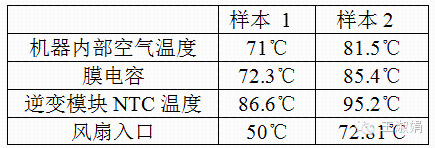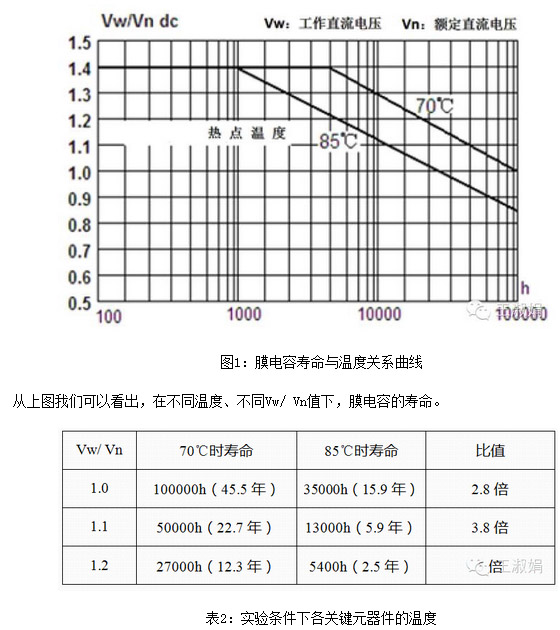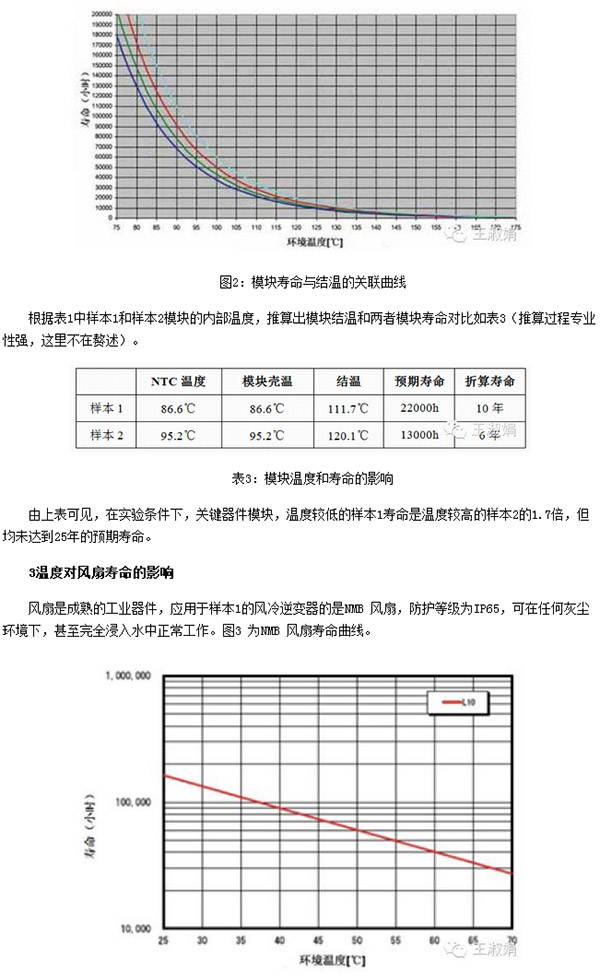The influence of temperature on photovoltaic modules is very large, which is also widely recognized.
Photovoltaic modules generally have 3 temperature coefficients: open circuit voltage, peak power, and short-circuit current. When the temperature rises, the output power of photovoltaic modules will inevitably drop! Therefore, temperature reduction is a factor that has a great influence on system efficiency. If the local temperature is too high, hot spots will be produced, which will affect the life of the PV modules.
However, how much influence does the temperature have on the life of the inverter? There are not many people who know this.
In order to verify the effect of temperature on the life of the inverter, the following experiment was designed.
1, experimental methods and conditions
Experimental conditions: 480V DC voltage, 400V AC voltage, 50°C ambient temperature;
Experimental samples: 30 kW air-cooled inverter (sample 1) and 20 kW natural-cooled inverter (sample 2).
The purpose of the experiment is to illustrate the effect of temperature on the overall life of the inverter by measuring the effect of temperature on the life of the critical components of the inverter.
2, experimental methods and conditions
The two samples are fully loaded and stable under the experimental conditions. The temperature values ​​of the key components inside the test collection equipment are shown in the following table.

Table 1: Temperatures of key components under experimental conditions
1 Effect of Temperature on Lifetime of Film Capacitance
According to the measured data of the internal temperature of the sample product, assuming that the ripple current is the same, the relationship between the ratio of the operating voltage (Vw) to the rated voltage (Vn) (Vw/Vn) and the film life is shown in FIG.

Note: Because the membrane capacitance does not reach the above temperature during partial load operation, according to China's resource conditions, considering the conservative value of the full load of 2200 hours, the actual life should be greater than the value in the above table.
It can be seen that if the operating temperature of the film capacitor rises from 70°C to 85°C, the life expectancy will decrease to approximately 1/3 to 1/5 of the original value, and the lifetime will decrease as the Vw/Vn value increases. When Vw/Vn<1.1, the life of sample 1 can basically reach 25 years, overload will reduce its life; while sample 2 because of the temperature is too high, the life expectancy does not reach 25 years.
2 Temperature Effect on Module Lifetime
The module is the core device of the inverter. The internal junction temperature during operation directly affects the service life. Figure 2 shows the relationship between junction temperature and lifetime of the die provided by Infineon.

According to Fig. 3, the maximum operating temperature of the inverter is 50 °C. The normal operating time is 60,319 hours. Through intelligent forced air-cooling control, only when the module temperature of the inverter reaches 70°C or more, the fan will fully turn. In the normal day, the time for satisfying the full-rotation condition is about 6 hours, equivalent to 27.5 years. In addition, considering the rain and the ambient temperature below 50°C, the operating life of the fan will be longer.
3, summary
Under the experimental conditions (480V DC voltage, 400V AC voltage, and 50°C ambient temperature), due to the different cooling methods of Sample 1 and Sample 2, the critical device life is greatly different.
For the membrane capacitance, when Vw/Vn<1.1, the life of the sample 1 can basically reach 25 years, and the overload will reduce its lifetime; while the sample 2 has a long life of less than 25 years due to the high temperature.
For the module, sample 1 life is 1.7 times longer than sample 2, but none of them has reached the 25-year life expectancy.
For fans, mature industrial devices can have a lifetime of more than 25 years.
In summary, when new technologies such as container inverters and natural cooling inverters are widely used, the effects of these new technologies on heat dissipation and the impact on inverter life should be fully considered.
Dry Graphite,Graphite Powder,Dry Graphite Powder,Graphite Powder Bunnings
Henan Carbons New Material Technology Co., Ltd. , https://www.hncarbons.com
